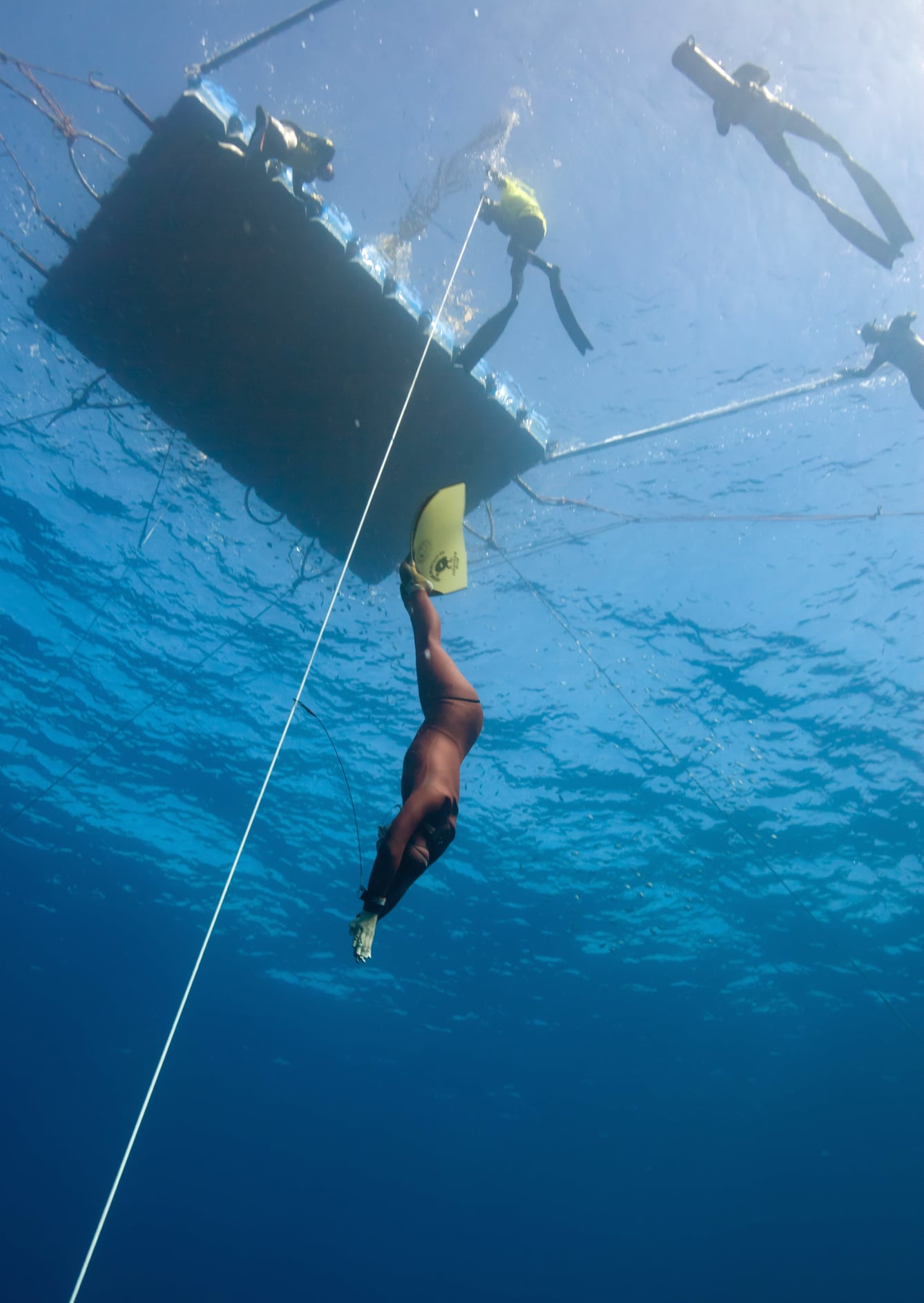Holding his breath … always going further

Châteauguay resident Nathan Vinski set a new Quebec record in freediving by descending (and ascending) 90 metres in a single breath in 2 minutes 49 seconds during a competition in Egypt in September. He is now aiming to break the Canadian record which has been held by Eric Fattah who descended to 104 metres without respiratory assistance. How did you discover this sport? I discovered the sport when I was about 13 years old. I googled “how to hold your breath longer” because my uncle always showed off in his pool and I wanted to beat him. That’s how I discovered it was a sport. Later on (6 years ago), when I was in CEGEP, I met a professor who also taught freediving in Montreal, and that’s how I got into the sport. How do you train? And how does one train to go deeper and deeper? Training for freediving is like any other sport. You need to practise the relevant techniques, build fitness by repeating shallow (sub-maximal) depths multiple times per session, multiple times per week, training for breath holding in the pool (doing horizontal laps underwater), and performing some cross-training to stay healthy and strong. Then it’s a slow process of building up towards personal-best depths at the end of a training cycle, when you’re confident that your body, and mind, can handle the demands of the deeper dives. This sport is risky. When you are at great depths, does the pressure hurt more in the lungs or in the head/ears? The sport can be very risky, if you do not approach it with respect. It takes years of training to handle the underwater environment. If you do not prepare properly, or try to do dives that you’re not ready for, it’s possible to lose consciousness, or injure your lungs or ears. In my case, I’ve very aware to only do dives I’m ready for, and believe it or not... at 90 m I had no feelings of discomfort in any way. If you are properly prepared, and know the correct techniques, there’s no feeling of pressure on the ears or lungs, and even the urge to breathe goes away. It’s only until I’m about 20–30 m from the surface (on the way back up) that I feel like I’m holding my breath. Before that, it’s honestly very comfortable. Of course, we never dive alone. If I make an accidental miscalculation and do for some reason lose consciousness, I need to have a back-up diver (also free diving) who can bring me to the surface and help me regain conscious. However, just to be clear, after 6 years of diving, and multiple competitions, I’ve never had a blackout on a deep dive (I have had 2 during pool training when I was first starting to train, due to lack of experience). Do you have to be careful when you go back to the surface, like not going too fast because of the pressure? No, unlike SCUBA since we only have 1-breath of air, we are able to ascend as fast as we’d like. During my 90m dive, I descended at 0.9 metres per second, and I ascended with strong finning technique at 1.25 metres per second. Of course, there still is the possibility of having decompression sickness from freediving. It’s not safe to do multiple deep dives (more round 55-60m) in one day, and on dives deeper than 70m, I make sure to take 2 days off from deep training to make sure there’s no nitrogen left in my body before I go down again. (Translation Amanda Bennett)